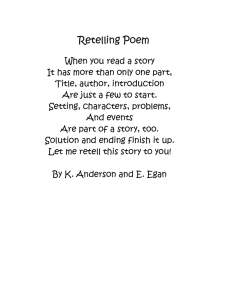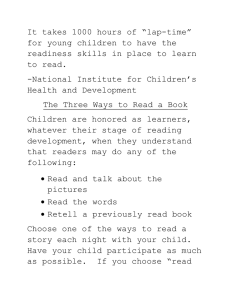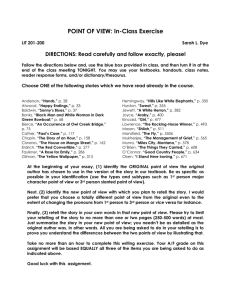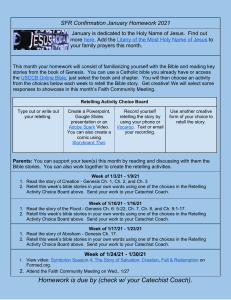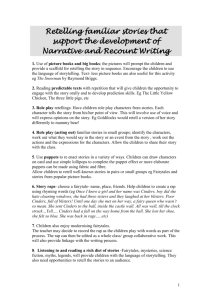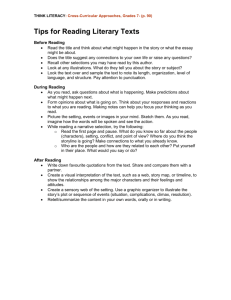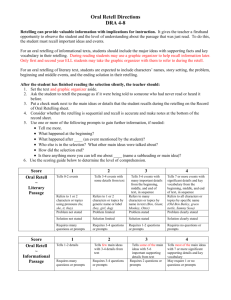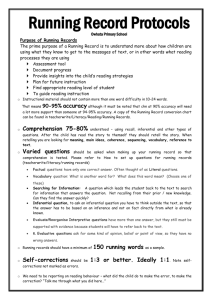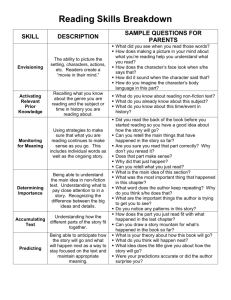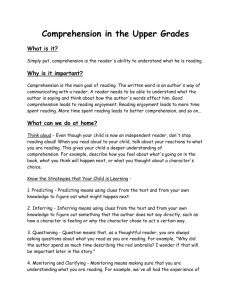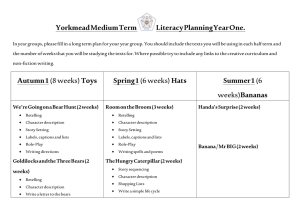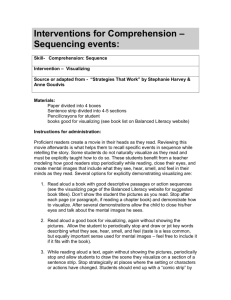Retelling: One of Many Comprehension Strategies
advertisement
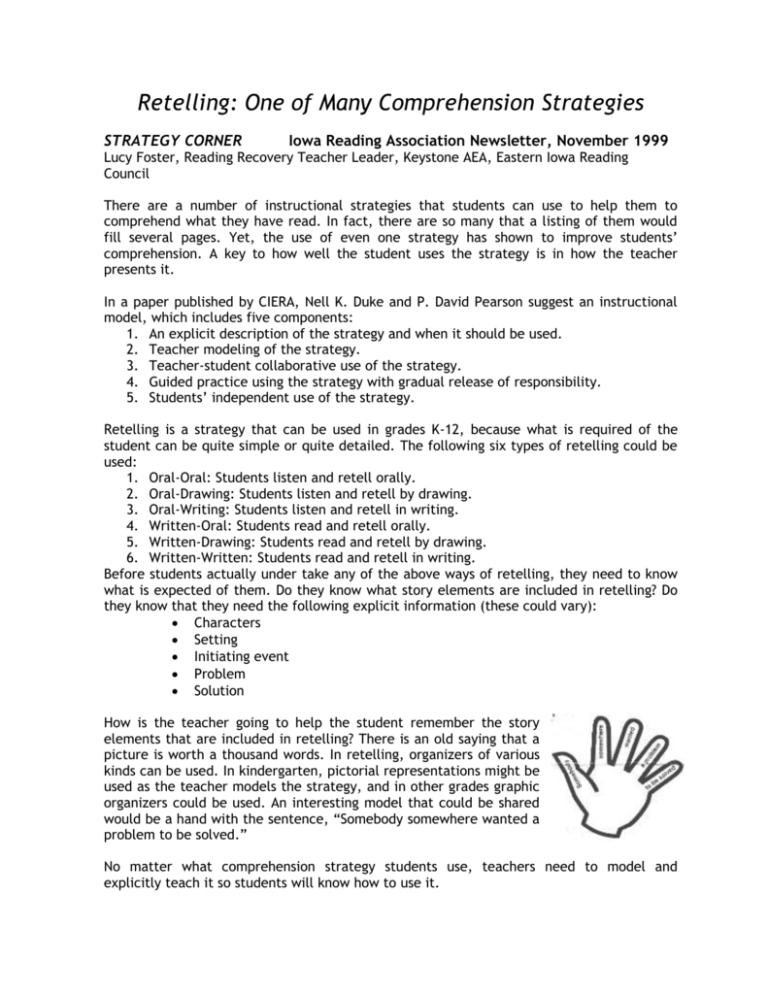
Retelling: One of Many Comprehension Strategies STRATEGY CORNER Iowa Reading Association Newsletter, November 1999 Lucy Foster, Reading Recovery Teacher Leader, Keystone AEA, Eastern Iowa Reading Council There are a number of instructional strategies that students can use to help them to comprehend what they have read. In fact, there are so many that a listing of them would fill several pages. Yet, the use of even one strategy has shown to improve students’ comprehension. A key to how well the student uses the strategy is in how the teacher presents it. In a paper published by CIERA, Nell K. Duke and P. David Pearson suggest an instructional model, which includes five components: 1. An explicit description of the strategy and when it should be used. 2. Teacher modeling of the strategy. 3. Teacher-student collaborative use of the strategy. 4. Guided practice using the strategy with gradual release of responsibility. 5. Students’ independent use of the strategy. Retelling is a strategy that can be used in grades K-12, because what is required of the student can be quite simple or quite detailed. The following six types of retelling could be used: 1. Oral-Oral: Students listen and retell orally. 2. Oral-Drawing: Students listen and retell by drawing. 3. Oral-Writing: Students listen and retell in writing. 4. Written-Oral: Students read and retell orally. 5. Written-Drawing: Students read and retell by drawing. 6. Written-Written: Students read and retell in writing. Before students actually under take any of the above ways of retelling, they need to know what is expected of them. Do they know what story elements are included in retelling? Do they know that they need the following explicit information (these could vary): Characters Setting Initiating event Problem Solution How is the teacher going to help the student remember the story elements that are included in retelling? There is an old saying that a picture is worth a thousand words. In retelling, organizers of various kinds can be used. In kindergarten, pictorial representations might be used as the teacher models the strategy, and in other grades graphic organizers could be used. An interesting model that could be shared would be a hand with the sentence, “Somebody somewhere wanted a problem to be solved.” No matter what comprehension strategy students use, teachers need to model and explicitly teach it so students will know how to use it.
